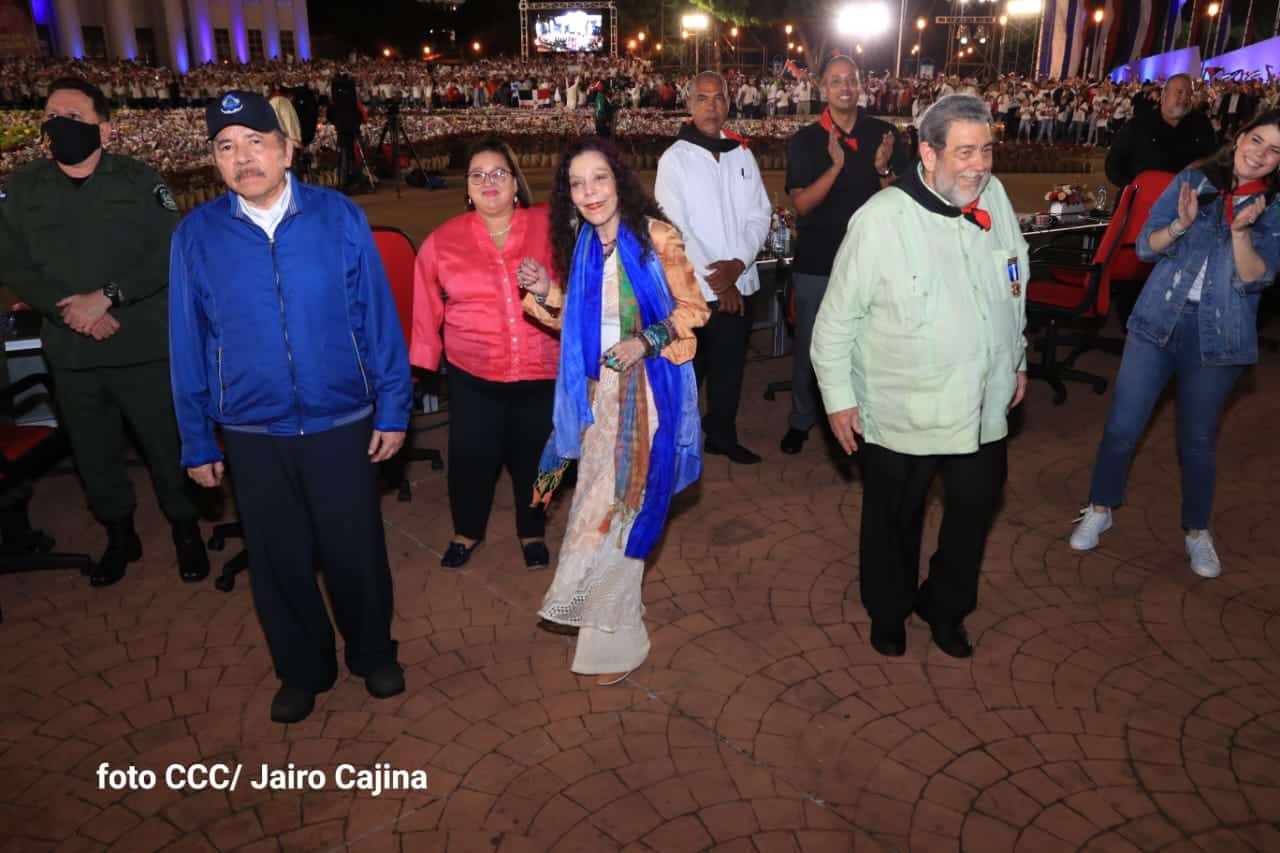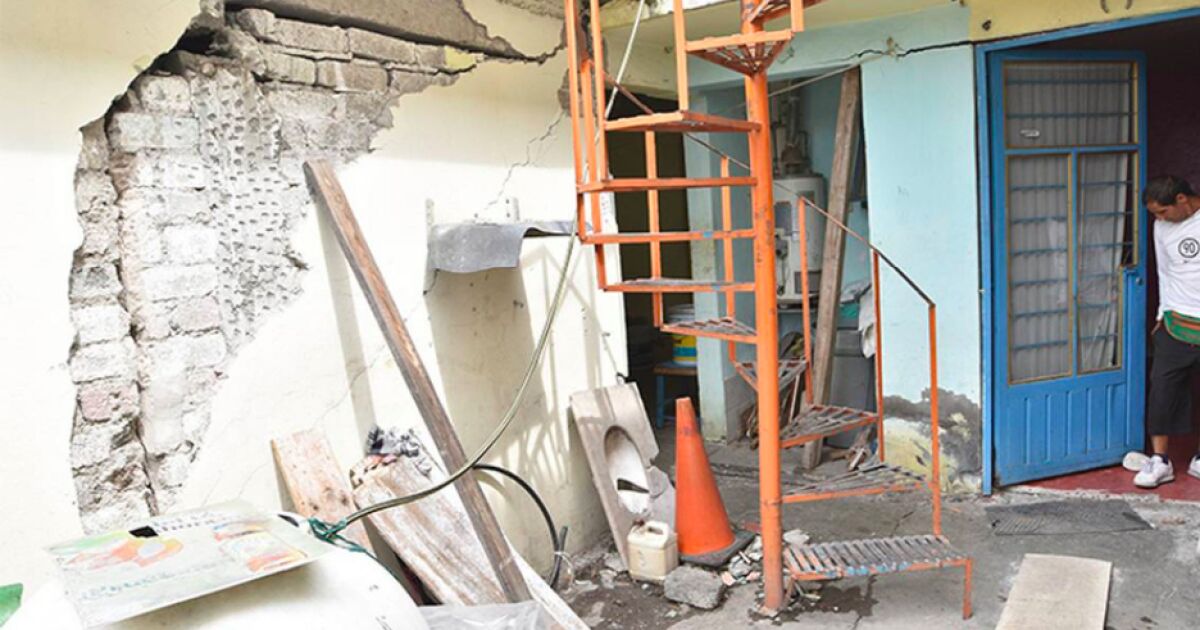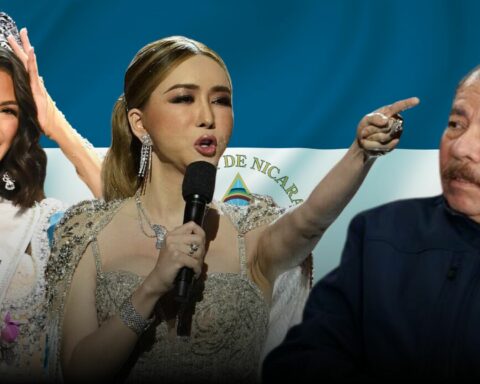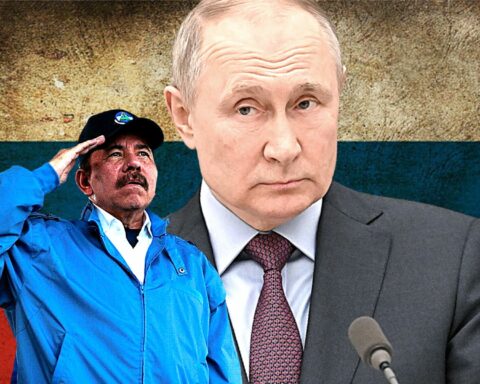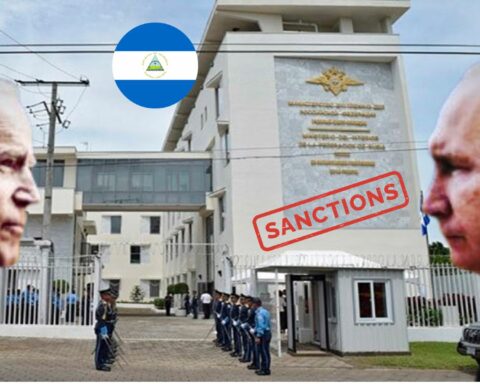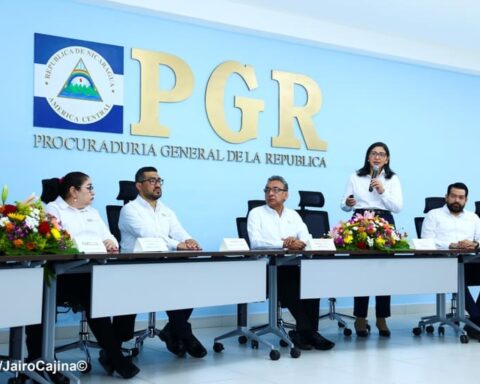A forty-minute speech, full of historical ramblings –at the official act for the 43rd anniversary of Nicaragua’s victory against the Somocista dictatorship, this July 19– did not reach Daniel Ortega to refer to the historical event that summoned a small number of his operators and sympathizers, in an act that he and his vice president, spokeswoman and wife, Rosario Murillo, have reduced to partisan theater.
Isolated from the democratic international community, which does not recognize his fourth consecutive term after uncompetitive votes –after imprisoning seven opposition presidential candidates and dozens of political and social leaders–, the dictatorial couple led another act on July 19, that Murillo “enlivened” with his verses and dances to the rhythm of cumbia, chinamo and propaganda, while some of the main heroes of that deed are imprisoned or exiled by his regime, which is enthroned as a new family dictatorship in Nicaragua.
In the forty minutes of his speechOrtega gave a talk of historical ravings on independence versus imperialism to his star guest: the Prime Minister of Saint Vincent and the Grenadines, Ralph Gonsalves.
The “history class” reviewed the United States arms race and the bombs against Hiroshima and Nagasaki, the Spanish conquest, the Haitian revolution, and the interest of the United States in building an interoceanic canal on the San Juan River. He also repeated the intervention of the American filibuster William Walker and the anti-imperialist struggle of Augusto C. Sandino.
Around ten o’clock at night, Ortega abruptly ended his speech without mentioning the historic event that brought them together.
“Disconnected from the world”
The guerrilla commander Mónica Baltodanowho participated in the insurrection against the Somocista dictatorship and has published four volumes on the memories of the Sandinista struggle, affirms that Ortega is “disconnected” from reality and that is why he returned to celebrate “in solitude” and with a “boring and boring” speech. without content” this historic date, which she spent in Costa Rica, where she is one of the more than 100,000 Nicaraguans exiled in recent years due to political persecution against those who criticize or do not sympathize with Ortega.
“Ortega, who as a characteristic had contact with his bases, with the popular sectors, who showed off entering the acts in the middle of the crowd, once on horseback, sometimes on foot or in a caravan of vehicles, was seen to be disconnected from the people. He looks terrified, he cannot hide that he is dying of fear, ”Baltodano explained in an interview with the Despacho 505 site.
In a report of CONFIDENTIAL, that analyzed why Ortega has not called since 2020 At a mass act to commemorate July 19, Baltodano said that Ortega thus shows that “he is terrified” and that is why “he only appears on closed stages with groups where people are sitting.”
“Caught in time”
The former opposition deputy and political analyst, Eliseo Núñez, believes that Ortega’s speeches show that “he is an anachronistic character”, who resorts to “telling old stories” because “he got stuck in the eighties”, when he governed for the first time after the triumph of the insurrection against Somocism.
“His only reference is to have defeated the Somoza dictatorship and then we see that he constantly goes back to that Sandinista revolution of which he was part one day, because he knows that many people at that time, both nationally and internationally, believed in that revolution” , value.
According to Núñez, Ortega’s speeches are monothematic because “he sells them as anti-imperialist and wants to make people believe that his fight is to put an end to North American and European hegemony.”
Núñez agrees with Baltodano that the president “looked disconnected” and adds that “it seems that he does not know what day he was on.”
“That is something recurrent in his speeches. He comes out talking about something else when the situation is different. We saw it in his first speech after the covid-19 pandemic, where he failed to show the problem in any way, ”criticized the opponent.
Núñez affirms that Ortega has always been characterized by “confusing dates”, “telling the story at his convenience” and “having long and boring speeches”.
“In the eighties it was the same. He gave the rhetorical and boring speeches, while the economic issues were spoken by Dionisio Marenco (RIP) and Sergio Ramírez (exiled after threat of jail); and the military speeches were made by Humberto Ortega (critic of his brother, residing in Costa Rica) and Tomás Borge (also deceased)”. Now all the weight falls on Rosario Murillo, who is the one who governs in his prolonged absences, ”says Núñez.
159 speeches in four and a half years
From January 2018 to July 2022, Daniel Ortega has had 159 public appearances, which include 94 official state acts, which are mostly parades and festive activities of the National Police and the Nicaraguan Army, and 50 party commemorations of the Front. Sandinista, among these: the anniversary of the Revolution, the death and birth of Sandino, Carlos Fonseca and Tomás Borge, and the National Literacy Crusade.
Of those 159 appearances, few are messages to the nation due to current issues, despite the fact that all are broadcast on a mandatory radio and television network, according to an analysis of data from CONFIDENTIAL, with the transcript of the 159 speeches published in the official newspaper El 19 Digital. In fact, his only message to the nation in these four and a half years was in April 2020, when he appeared almost a month after the confirmation of the first case of covid-19 in Nicaragua and minimized the impact of the pandemic.
Instead, his interventions focus on the complaint against “Yankee imperialism” which he holds responsible for the alleged “failed coup attempt”, as his regime refers to the citizen protests of 2018.

The last five July 19
In the last five years, the event commemorating the triumph of the insurrection against the Somocista dictatorship in 1979 has gone from a partisan theater that summoned FSLN sympathizers in a massive act to a private party in which the number of chairs arranged by Murillo – mistress of the party ceremony – does not exceed a thousand.
In 2018, supporters of the Sandinista Front were summoned to the Plaza de la Fe in a triumphalist action after the bloody “Operation Cleanup”, with which police and paramilitaries eliminated the barricades erected by the population during the protests of that year. Ortega and Murillo arrived at the plaza aboard one of their armored Mercedes Benz and they advanced through the crowd while the cumbiera lyrics sounded “Even if it hurts, Daniel stays”.
In 2019, Ortega reappeared aboard his vehicle and advanced surrounded by a chain of police officers and his personal security squad. However, no democratic head of state attended that event, and the star guests were the unknown Anatoli Bibilov, head of government of South Ossetia, far-right evangelical pastors and some foreign ministers.
“Before, there were presidents and former presidents like Martín Torrijos or Vinicio Cerezo. Nobel Peace Prize winner Rigoberta Menchú. Characters that today are conspicuous by their absence”, then, the academician Carlos Tünnermann.
“A very distant speech”
In November 2021, the Nicaraguan writer in exile Sergio Ramírez, who was vice president of the first Ortega government in the eighties, stated that the figure of Ortega has nothing to do with the Sandinista revolution, but rather is part of a discourse created to get “a personal power”.
“Ortega begins to become a caudillo when we lose the 1990 elections and Violeta Barrios de Chamorro wins them, he is left alone and begins to build power through him, it is a personal power that has nothing to do with the revolution, the revolution is dead, let’s forget it”, said the writer during the presentation of his novel “Tongolele did not know how to dance”.
He added that Ortega has managed to “fix” the remains of the 1979 Sandinista revolution to establish himself as the caudillo, with an old discourse that does not connect with the youngest voters, who are the ones who supported the 2018 protests.
“He begins to revive the revolution in memory with an old speech” that “young people do not understand,” said Ramírez. The writer added that “70% of the population is under 30 years of age, many of those who had to vote in these elections (of 2021) were born in this century, so Ortega’s speech is very distant,” he summarized. .
“A speech for their bases”
The economist Enrique Sáenz valued in a video published on his social networks that what Ortega did this year was recite “his usual chants.”
“I don’t know if Ortega invents his comics or knows that they are inventions, but what I don’t know is if anyone believes it (…) because he even talked about the interoceanic canal, Vanderbilt, the gold rush, (…) and the mouth talking about the traitors, but what he did not say is that he handed over the canal concession to the economic speculator Wang Jing”, said Sáenz.
In July 2019, the political prisoner now ordered by Ortega and Murillo, Dora María Téllez, affirmed that Ortega’s speeches sought to “encourage his party base” when his popularity and even his most loyal followers faltered.
“It is a regime that is in agony, that no longer resolved its power factors, and was not able to compose any of the elements that allowed it to be in power. His loyal base has been eroded,” he said.

private celebration
Under the argument of the covid-19 pandemic, in 2020, the ruling Sandinista Front, controlled by the couple of Daniel Ortega and Rosario Murillo, moved the annual act in commemoration of July 19 to the small Plaza de la Revolución, to the which only invited people entered. The rest of the supporters did not even manage to approach the event, surrounded by a metal fence, police and security agents.
That year, Ortega appeared for the first time wearing a mask and focused his speech on the pandemic, which he continued to minimize. The caudillo was accompanied by his operators, officials and selected members of the Sandinista Youth. His speech also included a review of the history of Nicaragua and “imperialism” to emphasize that care must be taken with “Yankee ambassadors.”
In 2021, Ortega celebrated the 41st anniversary of the Revolution even more isolated. The only international guest was the Foreign Minister of Abkhazia, which is only recognized by four nations. Ortega repeated the historical description of him against “imperialism”, and highlighted the loyalty of the Police and the Army.
In 2022, for the third consecutive year, the regime repeated the celebration with a private act and, in the absence of international political leaders to support him after four years of human rights violations and repression, he performed a concert that served as a backdrop for speeches by Rosario Murillo, the Prime Minister of Saint Vincent and the Grenadines, Ralph Gonsalves, and yours.

